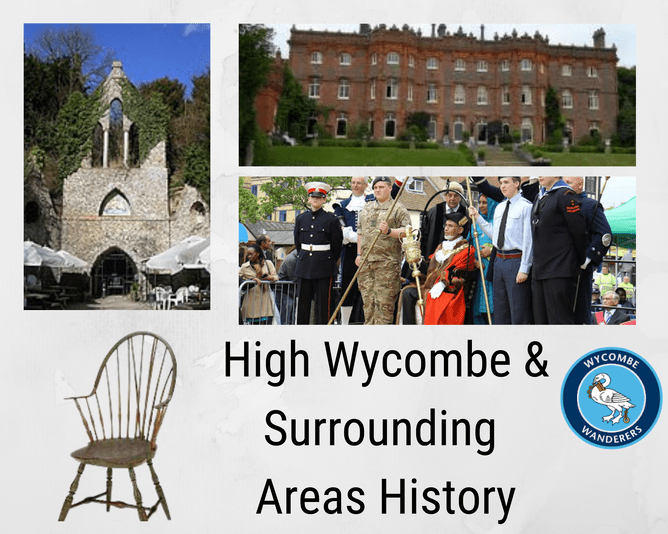May is the Local and Community History month across the UK! The Historical Association, which is a charity registered and incorporated by the Royal Charter, supports education, enjoyment and the learning of history at all levels of teaching and adulthood. Their mission is to “inspire, enable and encourage” people across all walks of life to get involved with history, and the Local and Community history month is one of their ways to do it.
In this month, the Historical Association wants everyone to research and read, share information and raise awareness about the history of their communities and local areas. They also want people to hold events in their local area highlighting these, and to promote and advertise areas of heritage and historical concern.
We are based in Stokenchurch, a village 3 miles outside of High Wycombe. We have put some interesting information together about Stokenchurch and the surrounding areas.
Stokenchurch
13th-century manorial records describe the village as Stockenechurch, which would suggest the name comes from Old English stoccen + cirice, literally "logs church” therefore a church made of logs however this has been argued and the origin is still not known.
Wormsley Park in Stokenchurch was bought in 1986 by Sir Paul Getty. He built a cricket ground in 1992 with a mock-Tudor pavilion After Mick Jagger introduced him to cricket. The Queen Mother and the Prime Minister, John Major, attended the first match, along with Michael Caine, Denis Compton and Brian Johnston. Over the final decade of his life, Getty invited teams to play at what is now known as "Sir Paul Getty's Ground" with the teams ranging from world-class sides to youth sides.
Our claim to fame – Cashtrak is situated on Wormsley Crescent, a short distance from the estate.
High Wycombe
The name Wycombe appears to come from the Old English 'wic' and the plural of Old English 'ham', and probably means 'dwellings'; the name of the river was a late back-formation. Wycombe appears in the Domesday Book and was noted for having six mills
Is the 2nd largest town in Buckinghamshire (after Milton Keynes.)
The town has a tradition that dates back to Medieval times of weighing its mayor at the start and end of their term to make sure that they aren’t gaining weight on the taxpayer's money. Hundreds of years ago, if a mayor had gained weight he could be expected to be pelted with tomatoes and rotten fruit.
Wycombe is famous for industry, particularly furniture (the most famous being the Windsor chairs). It is thought that around 4,700 chairs were made every day in High Wycombe in 1875. Wycombe’s museum (known to many as the chair museum but has a lot more to offer) is open to visit: www.wycombemuseum.org.uk.
The Hellfire Caves, located down the road from Stokenchurch are man-made caves which extend 260m underground. They were excavated in the mid-1700s for Sir Francis Dashwood.
Sir Francis Dashwood started The Knights of St Francis of Wycombe club (later known by the name the Hellfire Club) and met at the caves umour had it, served as the meeting places of "persons of quality" who wished to take part in what were socially perceived as immoral acts, and the members were often involved in politics. Neither the activities nor membership of the clubs were easy to ascertain.
The caves are open to visit, click here.
Wycombe Abbey school, an independent boarding school for girls, was the Headquarters of Eighth Air Force Bomber Command during the Second World War.
Continuing the War theme, nearby Hughenden Manor was home to a map-making operation in the Second World War, so secret it only came to light 60 years later after a chance encounter. It was requisitioned by the Air Ministry in 1941 and played a significant role in shaping the outcome of the war.
Hughenden Manor was the country home of Benjamin Disraeli, who was Prime Minister in 1868 then 1874-80. He was Queen Victoria’s favourite Prime Minister and showered him with gifts, letters and keepsakes over more than 20 years.
Hughenden Manor, now owned by the National trust is open to visit (including the secret war time
bunker and a collection of Benjamin Disraeli’s personal memorabilia) click here for visitor information.
Roald Dahl
Great Missenden, 13 miles from Stokenchurch and 7 miles from High Wycombe was home to the famous author Roald Dahl for 36 years until his death in 1990. He wrote all of his children's books and many of his adult short stories in the Writing Hut he had built in his garden. Many of Roald Dahl's stories are based in and around the village. The Roald Dahl museum, in Great Missenden is open to visit, click here for visitor information for the Roald Dahl museum.
Wycombe Wanderers Football Team
Founded in 1887, they are situated close to the Cashtrak office. They won promotion to the Football League under Martin O’Neill in 1992-93. And have played in the EFL Championship and League One. They reached the FA Cup semi finals and were beaten 2-1 by Liverpool.

